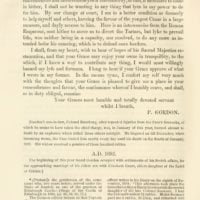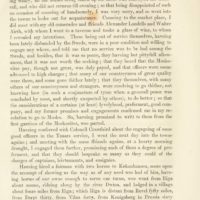![1692] DIARY OF PATRICK GORDON. 179 Patrick Gordon of Cults 1692] DIARY OF PATRICK GORDON. 179 Patrick Gordon of Cults](https://cdn2.picryl.com/photo/1699/12/31/1692-diary-of-patrick-gordon-179-patrick-gordon-of-cults-aedde7-1024.jpeg)
Related

174 DIARY OF PATRICK GORDON. [1692 be restored. As for Harie Gordon
![1686] DIARY OF PATRICK GORDON. 143 Gordon, and as much to the Lord Chancellour](https://cdn2.picryl.com/thumbnail/1699/12/31/1686-diary-of-patrick-gordon-143-gordon-and-as-much-to-the-lord-chancellour-180199-200.jpeg)
1686] DIARY OF PATRICK GORDON. 143 Gordon, and as much to the Lord Chancellour
![1699] DIARY OF PATRICK GORDON. 193 ' A number of Strelitzes were executed](https://cdn2.picryl.com/thumbnail/1699/12/31/1699-diary-of-patrick-gordon-193-a-number-of-strelitzes-were-executed-26b730-200.jpeg)
1699] DIARY OF PATRICK GORDON. 193 ' A number of Strelitzes were executed
![1690] DIARY OF PATRICK GORDON. 171 Most Christian King](https://cdn2.picryl.com/thumbnail/1699/12/31/1690-diary-of-patrick-gordon-171-most-christian-king-1c27ed-200.jpeg)
1690] DIARY OF PATRICK GORDON. 171 Most Christian King
![1696] DIARY OF PATRICK GORDON. 185 for a just cause is rewarded](https://cdn2.picryl.com/thumbnail/1699/12/31/1696-diary-of-patrick-gordon-185-for-a-just-cause-is-rewarded-d5c23a-200.jpeg)
1696] DIARY OF PATRICK GORDON. 185 for a just cause is rewarded
![1690] DIARY OF PATRICK GORDON. 169 regiments in line three deep](https://cdn2.picryl.com/thumbnail/1699/12/31/1690-diary-of-patrick-gordon-169-regiments-in-line-three-deep-7f03ff-200.jpeg)
1690] DIARY OF PATRICK GORDON. 169 regiments in line three deep

42 DIARY OF PATRICK GORDON. [1661 misfortune
![1689] DIARY OF PATRICK GORDON. 165 memory, the younger Czar](https://cdn2.picryl.com/thumbnail/1699/12/31/1689-diary-of-patrick-gordon-165-memory-the-younger-czar-b525cd-200.jpeg)
1689] DIARY OF PATRICK GORDON. 165 memory, the younger Czar
![1686] DIARY OF PATRICK GORDON. 155 Crossing the Black River](https://cdn2.picryl.com/thumbnail/1699/12/31/1686-diary-of-patrick-gordon-155-crossing-the-black-river-daa006-200.jpeg)
1686] DIARY OF PATRICK GORDON. 155 Crossing the Black River
1692] DIARY OF PATRICK GORDON. 179 Patrick Gordon of Cults
Summary
Passages from the diary of General Patrick Gordon of Auchleuchries : A.D. 1635-A.D. 1699"
1692] DIARY OF PATRICK GORDON. 179
Patrick Gordon of Cults, and they, or any two of them their discharges, to
be sufficient acquittances, I haveing entrusted my effaires there to them ;
reserving also, as a portion for one of my other sons, to whom I shall as-
signe it, the summc of two thousand punds Scottish, which summe of two
thousand punds is not to beare annuall rent untill the first Whitesunday
after he to whom it shall be assigned shall come to Scotland, and produce
the assignation or attested copy of my testament ; and for the more security
hereof, a bond of provision to be made up, and that, as well as the infiofment,
to be registrate according to our Scottish formes, and these bonds and
writeings to be delivered to the custody of my above mentioned ffriends,
whom, also, for this and other purposes, I constitute my proctors ; and be-
cause, in this remote place, wee are ignorant of the Scottish formes of such
dispositions and other writeings, so have I subscrived foure sheets of paper
battered together, subscrived on the margine at the battermg or glowing,
and at the bottome, to be filled up according to the Scottish formes, befor
the same witnesses that this is subscrived, to witt. Major Generall Pawll
Menezes, Collonell Alexander Leviston, and Major Hary Gordon. So done
at Mosko, A.D. 1692, the eleventh of January.
TO THE EARLE OF ABERDEEN.
Mosco, 11 January, 1692.
May It please your Lordship,
My last was the eighth of August, by Rothemayes brother.
By this I have sent a disposition of the heretablc right of the lands of
Achluichries to my eldest son, John, reserving two hundi'ed punds Scottish
yearly for me and my wyfe, during our hves ; as also two thousand punds
Scottish, a portion for one of my other sons. For security of the first, I
desire that my wyfe be infeft in the two ploughs of Easter Achluichries, and
for the other, a bond of provision to be made, which writeings, and a bond
for the money, to be gott from Rotliemay, and any other writeings, I desire
to be given in custody to any whom your Lordship shall advise ; for it is
dangerous tyme now, and the old proverb proveth but too oft true :
Nou pater a filio, non Iiospes ab liospite tutus,
Non socer a gcnero, fratrum quoquc gratia rara est.
And to say the truth, I have reserved that rather to keep my son in duty,
and to make him frugall, than that I have any hopes of ever comeing to that
Gordon was brought up and remained a lifelong Roman Catholic, at a time when the Church was being persecuted in Scotland. At age of fifteen, he entered the Jesuit college at Braunsberg, East Prussia, then part of Poland. In 1661, after many years experiences as a soldier of fortune, he joined the Russian army under Tsar Aleksei I, and in 1665 was sent on a special mission to England. After his return, he distinguished himself in several wars against the Turks and Tatars in southern Russia. In recognition of his service he was promoted to major-general in 1678, was appointed to the high command at Kiev in 1679, and in 1683 was made lieutenant-general. In 1687 and 1689 he took part in expeditions against the Tatars in the Crimea, being made a full general. Later in 1689, a revolution broke out in Moscow, and with the troops under his command, Gordon virtually decided events in favor of Peter the Great against the Regent, Tsarevna Sophia Alekseyevna. Consequently, he was for the remainder of his life in high favor with the Tsar, who confided to him the command of his capital during his absence from Russia. In 1696, Gordon's design of a "moveable rampart" played a key role in helping the Russians take Azov. One of Gordon's convinced the Tsars to establish the first Roman Catholic church and school in Muscovy, of which he remained the main benefactor and headed the Catholic community in Russia until his death. For his services his second son James, brigadier of the Russian army, was created Count of the Holy Roman Empire in 1701. At the end of his life the Tsar, who had visited Gordon frequently during his illness, was with him when he died, and with his own hands closed his eyes. General Gordon left behind him a uniquely detailed diary of his life and times, written in English. This is preserved in manuscript in the Russian State Military Archive in Moscow. Passages from the Diary of General Patrick Gordon of Auchleuchries (1635–1699) was printed, under the editorship of Joseph Robertson, for the Spalding Club, at Aberdeen, Scotland, 1859.
